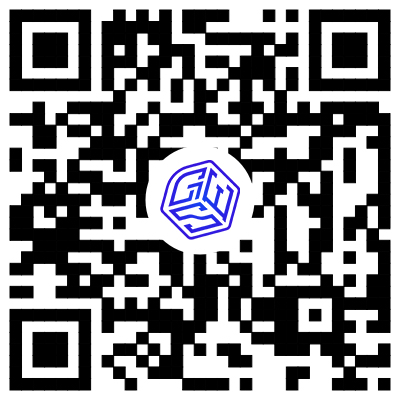Pubdate:2024.3.5. 10:10 Author:editorSource:Beijing Normal University
To advance the strategic initiatives for the digitalization of education and deepen the development of smart education, fostering the sharing and mutual learning of experiences in the smart education domain, enhancing the dissemination of exemplary practices internationally, and operating under the guidance of Department of Science, Technology and Informatization of the Ministry of Education, the Organizing Committee of Global Smart Education Conference, in collaboration with Educational Informatization Strategy Research Base (Beijing, Central China, Northwest) of the Ministry of Education, is undertaking the “2025 Smart Education Best Practices” initiative.
Type 1: Regional Development
Highlight initiatives, distinctive effects, and exemplary experiences that have emerged during the comprehensive promotion of education digitalization and smart education development in a region. For instance, sustainable development mechanisms for regional smart education, regional education public service systems, integrated applications of smart education platforms, digital education development and governance, digital education services benefiting the public, new infrastructure for education and smart learning environments, enhancement and assessment of digital literacy for teachers and students, digital leadership, reforms in education evaluation and comprehensive quality assessment, AI in education, education big data, bidirectional empowerment of technology and education, and promotion of rural education revitalization. The best practices of regional development should avoid being overly comprehensive, focusing on characteristics, emphasizing key points, prioritizing effectiveness, presenting data, providing examples, and playing a demonstrative and guiding role.
Type 2: School Practices
Innovative explorations and practices in schools that drive the digitalization transformation of education and encourage teachers to engage in smart teaching. Examples include the application of national smart education platforms, the use of digital teaching tools, new teaching models, construction and sharing of high-quality educational resources, scientific and innovative educational curricula, cultivating top-tier innovative talents, comprehensive student quality assessments, collaborative teaching research and professional development for teachers, school-family-community collaboration in nurturing individuals, smart homework, smart reading, virtual experiments, smart campuses, and smart classrooms, digital literacy of teachers and students and digital leadership, AI in education. Best practices at the school mainly revolve around classroom teaching reform, innovation in talent development models, emphasizing the integration of digital technology with the “five dimensions (moral, intellectual, physical, aesthetic, and labor education),” and promoting students’healthy growth.
Type 3: Solution
Smart education solutions provided by enterprises to facilitate the digitalization transformation of education. For example, intelligent educational equipment, large language model in education, system platforms, tool software, digital resources, digital teaching materials, knowledge graphs, educational networks, digital foundations, or integrated technological solutions, etc. Solutions should avoid being merely product presentations, focusing instead on highlighting their application scenarios, cases, and effects in regional or school smart education.
Type 4: Research Results
New theories, models, solutions, as well as practical research, case studies, international comparisons, policy recommendations, etc., resulting from research institutions and teams focusing on the digitalization transformation and smart education research in education. Research results should address grassroots frontline needs, adhere to problem-oriented approaches, drive the resolution of issues in smart education practices, and play a leading role in their field of expertise.
(1) The text should include a title, abstract, keywords, and main body. The main body should be around 10,000 words (refer to the attached format).
(2) The main body of regional development practices should include distinctive initiatives, highlights, and effective experiences in promoting smart education in the region, as well as summary or reflective discussions on the experiences.
(3) The main body of school practice practices should include distinctive applications in promoting smart education in schools, summarizing models, or reflecting on problems.
(4) The main body of solution practices should include the overall architecture and functionalities of intelligent education products, application scenarios, and case studies.
(5) The main body of research results practices should include background or problem analysis, research demonstration, conclusions, or recommendations.
(6) Practices should indicate authors (multiple authors are acceptable), affiliations, contact phone numbers, emails, etc. Submitted practices should be realistic, demonstrate exemplary value, and adhere to standardized writing practices.
(1) Voluntary submissions or recommendations are welcomed. Practices that were selected in the 2022, 2023 or 2024 editions of the best practices of smart education need not be resubmitted.
(2) Selected practices will be announced and certificates will be awarded at the “2025 Global Smart Education Conference.” The practices will be compiled and published in a Best Practices Collection (the 2022 and 2023 edition has already been published by Springer, and the 2024 edition is in the editing and publishing process). Selected practices may also be recommended for publication in journals such as “E-education Research,” “China Educational Technology,” “China Education Daily,” “Open Education Research,” “Modern Education Technology,” “Distance Education in China,” “The Chinese Journal of ICT in Education,” “Information Technology Education in Elementary and Secondary Schools in China,” “China Information Technology Education.”,”Digital Teaching in Primary and Secondary Schools”
(3) The authors are requested to submit the electronic version of their practices online by June 18, 2025 (Website: https://www.wjx.cn/vm/QvWqf5F.aspx#)
Contact Person: Ms. Yilin Hou (Phone: 86+18301286627; WeChat: 13671147017; Email: smartedu@bnu.edu.cn).
Attachment (Click to download): Reference format for Best Practices of Smart Education
Global Smart Education Network
The Organizing Committee of Global Smart Education Conference
February 28, 2025
